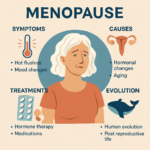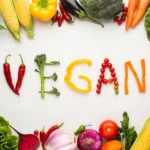
Our bodies require a variety of nutrients to function properly, including energy (such as sugar, protein, and fat), electrolytes (such as potassium, sodium, and magnesium), and minerals. Vitamins are one type of item that we require on a daily basis. They assist in a variety of bodily functions, ranging from converting food into energy to allowing us to think. Vitamins can be found in a variety of foods, the most common of which are fruits and vegetables. Vitamin C, which is found in citrus fruits such as oranges, among other things, aids in wound healing, our immune system (fighting colds and infections), and the health of our teeth.
Vitamin C is a water-soluble vitamin, which means that it dissolves or disappears in water (like putting sugar into water, the sugar disappears).
Men in the British navy were dubbed “Limeys” in the 1700s because they were forced to consume lime juice on long ocean voyages. What’s the reason? They were developing Scurvy, a disease caused by a lack of (or inability to obtain) vitamin C. Scurvy results in bleeding gums, tooth loss, and easy bruising. They began to drink lime juice, which prevented Scurvy!
While smoking cigarettes is harmful in many ways that we can see, it is also harmful to the body in ways that we cannot see. Tobacco, for example, depletes the body’s supply of vitamin C!
Vitamin C is also beneficial to the brain! It is necessary for the production of a special hormone in the brain known as a neurotransmitter, which aids in brain function.
Too much vitamin C can cause diarrhea and stomach aches. Most people get enough vitamin C from their diet, but if you need more, vitamin C pills are available.
Foods that have been cooked or stored in water can lose vitamin C. Consume fresh fruits and vegetables whenever possible, and avoid storing them in water.
Vitamin C was the first vitamin to be synthesized, manufactured in a factory, and taken as a pill.
Sour kraut, lemon juice, and oranges were also commonly consumed on long sea voyages to prevent scurvy.
Vitamin C is sometimes used to treat colds, and in very large doses, it can be used as an adjunct medicine to treat some cancers.
Most plants and animals can produce vitamin C on their own. Humans, monkeys, and guinea pigs are among the few animals that must consume vitamin C-containing foods because they cannot produce it.
Guinea pigs were one of the first truly useful animals for testing purposes because they, like humans, cannot produce their own vitamin C. Testing on guinea pigs actually helped discover what vitamin C was and how it could cure scurvy, which was a very serious disease at the time.









